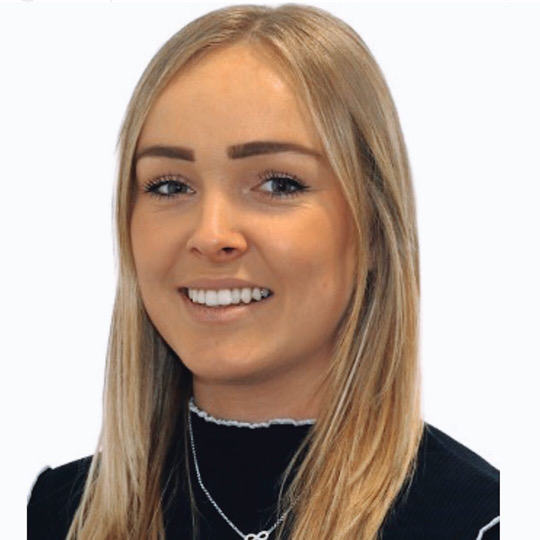
Interview with Amber Parslow, future trainee solicitor at Baker McKenzie
September 12, 2020
What You Need To Know About Uncontested Divorce In Oklahoma
September 14, 2020In this article, Storm Evans interviews Charlie Madill, a trainee solicitor at global law firm Herbert Smith Freehills (HSF). Charlie shares her journey to obtaining her training contract at HSF and gives insight into what training at the firm has involved so far. She also gives some advice to aspiring HSF trainees.
Can you give me a brief background of yourself?
I went to Imperial College London to study Chemistry and then I applied during my second year for a vacation scheme at HSF. I did the vacation scheme for two weeks in April three years ago and I really enjoyed it. I then had an interview for a training contract and received an offer. I completed the GDL and accelerated LPC at BPP. I then started working at HSF in February in the intellectual property (IP) department, which is about to end and my next seat will be in the corporate department.
You did a Chemistry degree — why did you decide that you wanted to go into law?
I didn’t really like the typical chemistry jobs; I didn’t want to be in a lab or anything like that, but I also wanted to use my degree as much as I could. So, there were two main things that I looked at. One was becoming a patent attorney, which is where you draft patents, but it seemed a bit niche so I didn’t like it. It also usually requires a PHD which would involve four years of further studying, so it would have been another eight years of studying which I wasn’t prepared to do. I then realised that you can actually just litigate over patents instead. I did research and spoke to a couple of people and found that you can do a training contract and do six months in IP to find out if you like it, and then you’ve got three other seats, or however many the firm offers, to see if you prefer a different area of law, then you wouldn’t be pigeon-holed. Obviously, the further I got away from IP, the less to do with science it would be; but if I liked it more, then I would have that option available to me.
Why did you choose to apply to HSF?
For me, it was because they were really good at IP — as well as a lot of other things of course! I also really liked that it is very global and has opportunities to do seats abroad, when we’re not in a pandemic, and it offered a STEM open day which not many firms do, at least not the global ones. I went to the open day and met the people, really liked it and really liked the office atmosphere. I also really liked that it is considered to be as prestigious as the magic circle but not as gruelling — I’ve only been in one seat, but it’s not been 2 a.m. finishes at all! That was obviously an attractive feature. I definitely applied to quite a few firms, but the vacation scheme solidified my mind because I really enjoyed it.
What was the application process like for you?*
It was just a normal online application but before it got to the questions there was a verbal reasoning test. Once you passed that, you got to the questions such as ‘why do you want to be a lawyer?’ etc; then it was a half-day assessment centre. In the assessment centre, you had to have a group discussion with everyone else and be watched by four people who were observing how you interact in a group and how you contribute. Then, there was a case study which involved being given a huge stack of paper on a fictional scenario and having an interview with one of the partners who questioned you on it. That involved having to read a lot of information really quickly and distilling the most important points, which I found challenging because I’m quite a slow reader and I take my time doing things. Obviously, you’re never expected to read everything and know everything because that’s physically impossible, but I think they’re just looking for a bit of initiative to identify the most important points. The last part was a personality interview with situational judgement questions such as ‘when is a time that you’ve led?’ and then more general questions such as ‘why HSF?’
How do you think you excelled in the vacation scheme?
My vacation scheme didn’t represent what life would actually be like working here because there were a lot of bonding type activities in the evenings. Make sure you are just as involved in the fun activities to meet people as you are in the serious-working part during the day. At the end of the day, they don’t just want a machine, they want someone who is going to fit into a team and be a fun person to be around, as well as be really hardworking and good at their job. I think I took the opportunity to get involved in that, and with the grad reps — just get to know them and show that you’re really interested in all aspects of working there, not just in the really good job and business card etc. Also, that’s not really a hard thing to do — it’s pretty fun to be able to do something at the end of the day; for example, I went to sushi-making activities. It’s also really important to make friends with the people you will be working with because you will have to rely on them all the time as a trainee. I also remember asking questions — you might think it’s annoying to, and you don’t know the person you’re sitting in a room with at all, but it’s definitely important. One of the partners I sat with on my vacation scheme told me he remembers me because I asked questions. Obviously, only ask if it’s a good question or if you think it’s intelligent; but, if you seem inquisitive, interested, enthusiastic and proactive, I think they will remember you for that. There’s nothing worse than someone who is really shy sitting there too scared to open their mouth; they don’t want someone like that, they want someone who is going to know when they should speak up.
What is your favourite thing about training at HSF?
I think that approachability of senior lawyers here is really different from other similar, competing firms; you can’t just go and bother them with any small thing but if you actually need to talk to them, they’re happy to talk to you. It’s a bit hierarchical but not terrifyingly so — and they have so much more experience than if you were going to ask another trainee. If you could feel comfortable asking an associate — of course you’re going to get a better answer from an associate and learn more that way. To feel like you’re able to do that, for me, is one of the best things about it, because I feel like I’m getting more of a learning experience. Also, instead of just giving a one-word answer or one-line email, they actually want to explain it to you. If you explain that you want to get involved and want to learn, then they get excited about that too and they want you to be involved in as much as you want to be involved in. I never feel dismissed or like I’m annoying someone by asking questions. That’s probably the best thing about training here and getting the best experience out of the TC. The really high retention rate also shows that they’re really invested in you and they keep most trainees so they want you to be as good as you can be.
What has your seat in IP involved?
It’s been really varied; in IP, it’s not contentious or non-contentious — it’s a mixture of both because IP is an umbrella department. I’ve been involved in patent litigation doing support-like tasks such as helping to draft expert reports and other key documents, doing scientific and legal research, drafting internal memorandums, taking attendance notes etc. Then, there are other things such as pro bono where I do transactional tasks, mainly copyright and trademark work, for example drafting consent and waiver forms. I also help with talks given to clients and graduate recruitment. Those are my day-to-day activities. Sometimes you get to interact with clients, especially on pro bono where you are given a lot more responsibility.
Do you have any advice to aspiring HSF trainees?
Do as much research about the firm you are applying to as you can because every single firm wants to be made to feel special in the application. You need to make sure that it doesn’t look copied and pasted from a different application; law firms are very similar, so it’s really easy to fall into the trap of talking about global reach etc. But, if you really try and find something that makes the firm stand out from the rest, then highlight that in your application form. Be yourself and maybe don’t make your form all about one practice area, because they don’t want someone who goes in so set on what they want that they could be closed-minded to seats that don’t align with that. You never know, you’re going to have to do at least four seats anyway, so you might change your mind. However, if you are interested in a particular practice area, there is no harm in highlighting that, especially if you pick out a couple of deals or clients that the firm has in that area — that would look good. But, don’t go overboard stating what you want because the global firms have so many different practice areas.
*The application process has since been changed.





